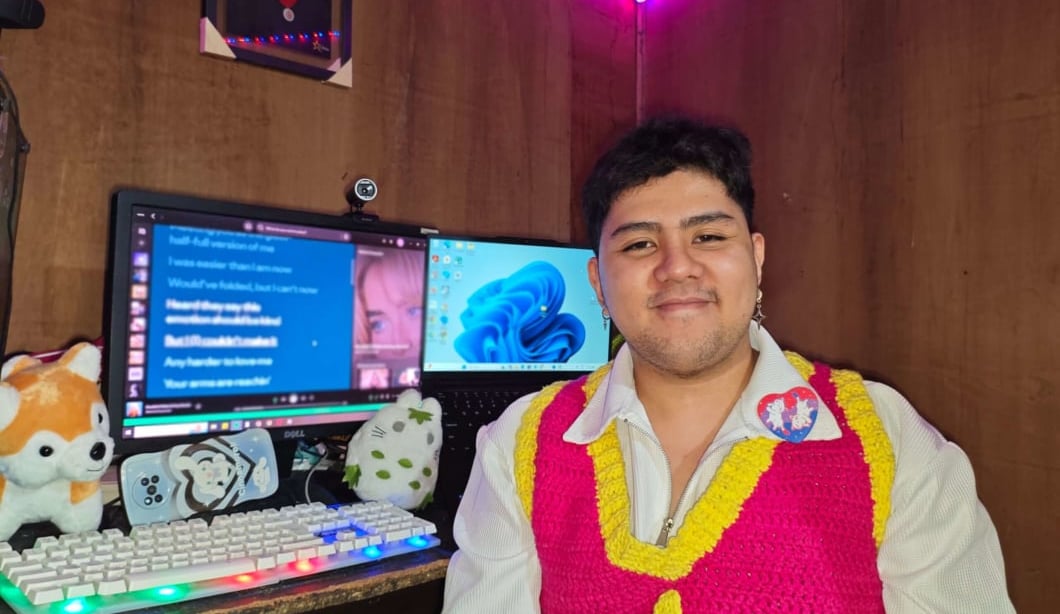Stay Safe, Stay Ready: Disaster Preparedness Whenever and Wherever
Behind The ScenesLiving in a tropical country along the Pacific Ring of Fire makes Filipinos more vulnerable to natural disasters such as earthquakes and typhoons. While we cannot control when these events happen, being prepared would help us respond better and bounce back faster.
For this month’s blog, let us read from the experience of Ezeckiel Albay, RareJob’s Facilities Management Associate, as he shares how RareJob prepares its employees – whether working onsite or remotely – for potential calamities.
Preparedness in Practice


Human Resources
Talent Acquisition
When did you start working in RareJob Philippines, Inc.?

Ezeckiel Albay
Facilities Management Associate
I began working in RareJob Philippines, Inc. in May 2014. I also earned a certification as a Safety Officer on March 2016 after completing the Basic Occupational Safety and Health (BOSH) training for Safety Officer 1 at the Occupational Safety and Health Center (OSHC). I later completed a 40-hour Loss Control Management (CLM) course in July 2019 and the Advanced Occupational Safety and Health Auditing Course based on ISO 19011:2018 in August 2019. These certifications qualified me as a Safety Officer III in compliance with Department of Labor and Employment (DOLE) standards.

Human Resources
Talent Acquisition
Can you give us a brief background about your role as a Facilities Management Associate?

Ezeckiel Albay
Facilities Management Associate
As a Facilities Management Associate, I process requests via RareJob’s workflow system, including incident reports, job orders, shuttle reservations, and office space allocations for company-wide initiatives. Likewise, I oversee and process timely renewals of government work permits in compliance with regulatory requirements. I work with the Finance Department to manage fixed asset transactions, monthly supplies, and quarterly inventories. Lastly, I ensure the upkeep of office spaces, maintaining a safe, functional, and efficient work environment.
As a Safety Officer, I facilitate training regarding emergency preparedness such as typhoons, earthquakes, fires, and basic life support. In emergencies, I lead evacuations, coordinate safety checks with building administration, and respond quickly to facility issues to minimize operational disruptions.
Ready and Alert!

Human Resources
Talent Acquisition
Since most of RareJob’s employees are working from home, what does the company do to increase awareness about calamities, and possibly help employees prepare for such?

Ezeckiel Albay
Facilities Management Associate
To promote safety and preparedness among our remote workforce, RareJob conducts annual webinars and training sessions focused on emergency awareness and disaster preparedness. These sessions cover critical topics such as Basic Life Support, and preparedness for typhoons, earthquakes, and fires.
To ensure the accuracy and relevance of the information shared, we invite expert resource speakers from reputable government agencies, including the Quezon City Disaster Risk Reduction and Management Office (QCDRRMO), PAGASA, the Bureau of Fire Protection (BFP), and PHIVOLCS. These initiatives help equip our employees with the knowledge and skills needed to respond effectively in times of calamity, even while working remotely.

Human Resources
Talent Acquisition
As you mentioned, your team conducts webinars/seminars for employees, especially those related to awareness and preparedness for calamities like typhoons, earthquakes, and fire. Can you share with us how you prepare for such activities?

Ezeckiel Albay
Facilities Management Associate
Preparation for these webinars and seminars involves a collaborative and well-coordinated process starting with my superiors to ensure each session is informative, engaging, and aligned with our goal of promoting safety, and preparedness among employees.
We begin by identifying relevant and timely topics based on the season, recent calamities, and feedback from previous sessions. Once the topics are finalized, we reach out to government agencies such as QCDRRMO, PAGASA, the Bureau of Fire Protection (BFP), and PHIVOLCS, with whom we coordinate regarding the schedule, presentation materials, as well as provide their expert resource speakers.
On the day of the event, we facilitate the session, assist speakers, and engage participants through review quizzes and Q&A segments. After the webinar, we gather feedback from attendees to evaluate the effectiveness of the session and identify areas for improvement for future events.
This structured approach helps us deliver high-quality, relevant training sessions that empower employees to stay informed and prepared, wherever they are.

Human Resources
Talent Acquisition
What are some of the safety measures that RareJob implements in order to ensure the safety of employees working onsite?

Ezeckiel Albay
Facilities Management Associate
RareJob implements several proactive safety measures for onsite employees. We maintain an internal awareness site with infographics and preparedness guides for typhoons and earthquakes. A detailed evacuation map is located within the office vicinity as part of our emergency response.
We also prepare Go Bags placed in key areas, regularly replenish supplies before expiration, and ensure that vests, hard hats, and headlights are ready for use. Additionally, we conduct HIRAC (Hazard Identification, Risk Assessment and Control) inspections to check the condition of safety equipment such as emergency lights, smoke detectors, water sprinklers, and fire extinguishers, ensuring everything is functional and up to standard.
We encourage everyone to support the webinars that Admin provided with the help of government agencies such as QCDRRMO, PAGASA, the Bureau of Fire Protection (BFP), and PHIVOLCS to be reminded and stay informed.

Safety First is Safety Always!

Human Resources
Talent Acquisition
How do you personally prepare for calamities, especially in your own home?

Ezeckiel Albay
Facilities Management Associate
I personally prepare for calamities by ensuring that my home and family are ready for emergencies. I keep an emergency Go Bag stocked with essentials such as food, water, a flashlight, a first aid kit, batteries, and important documents. I also make sure that items are regularly checked and replaced before expiration.
In addition, we stay updated on weather alerts and emergency advisories from official sources. I’ve also discussed an emergency plan with my family—designating safe areas, evacuation routes, and contact methods during disasters like typhoons or earthquakes. This way, we can respond quickly and safely when the need arises.

Human Resources
Talent Acquisition
Can you give our readers some tips on how to be prepared for calamities, especially now that the Philippines is in the monsoon season?

Ezeckiel Albay
Facilities Management Associate
Here are some simple yet important tips to stay prepared during the monsoon season:
- Prepare an emergency Go Bag – Include essentials like bottled water, canned goods, flashlight, batteries, first aid kit, hygiene items, and important documents.
- Stay informed – Follow updates from PAGASA, NDRRMC, and local government units for weather alerts and evacuation notices.
- Secure your home – Check your roof, gutters, windows, and drainage to prevent leaks and flooding.
- Charge your devices – Keep phones, power banks, and emergency lights fully charged in case of power outages.
- Plan ahead – Know your evacuation routes, have emergency contacts ready, and communicate a plan with your family.
Being informed and prepared can make a big difference in keeping you and your loved ones safe.





